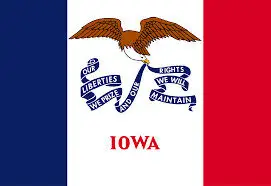Arizona Wills vs. Trusts
Navigating Arizona estate planning doesn’t have to be overwhelming. Whether you’re considering a will or trust, understanding the key differences can save your family significant time, money, and stress. This comprehensive guide breaks down Arizona’s unique laws to help you make the right choice for your legacy.
Table of Contents
US Map For The Different Will and Trust Requirements by State
Interested in other state’s law regarding wills and trusts? Click the ABOVE state you want to be taken to.
Arizona Will Requirements
An Arizona Last Will and Testament should include:
- Age and Capacity: Testator must be at least 18 years old and of sound mind, meaning they understand the nature of the document, their property, and intended beneficiaries (§14-2501)
- Format: Must be in writing (typed or handwritten). Oral wills are generally not enforceable (§14-2502)
- Signature: Must be signed by the testator or by another person at their direction in their presence (§14-2502)
- Witnesses: Requires signatures from two witnesses, who must be present during signing (§14-2502)
Interested Witnesses
Arizona allows witnesses to be beneficiaries under the will, but this may complicate the will’s validity. Using disinterested witnesses is generally recommended.
Self-Proved Wills
A notarized affidavit can make a will self-proved in Arizona, simplifying probate by avoiding witness testimony (§14-2504). This affidavit:
- Can be executed at the time of signing the will
- Can be added later with the testator and witnesses appearing before a notary
- Serves to establish the will’s validity during probate without requiring witness testimony
Incorporation by Reference
Arizona permits incorporation of external documents if explicitly referenced in the will (§14-2510). This allows a testator to reference other documents without including their entire contents in the will itself.
THE ULTIMATE FREE DOWNLOAD
The Estate Planners Tactical Guide
Essential Legal Protection for Achievers

Amendment, Revision, and Revocation of Arizona Wills
Revoking an Arizona Will
Arizona wills can be revoked through:
- Creating a new will that expressly revokes the previous one
- Physical destruction (e.g., burning, tearing, or canceling) with intent to revoke (§14-2507)
Automatic Revocation by Divorce
In Arizona, provisions favoring a former spouse are automatically revoked upon divorce (§14-2804). This includes any gifts to the ex-spouse as well as nominations as personal representative.
After-Born/Omitted Children
If a child is born after the execution of a will (pretermitted heir), they receive an intestate share unless explicitly disinherited (§14-2308). Arizona law protects children from unintentional disinheritance.
Need help creating the right estate plan for your Arizona family?
Our estate planning specialists can help you navigate Arizona’s unique laws and create a personalized strategy.
Holographic and Oral Wills
Holographic Wills
Arizona recognizes holographic wills as valid if entirely handwritten and signed by the testator; no witnesses are required (§14-2503). This makes creating a legally valid will more accessible for those without legal assistance.
Oral Wills
Arizona only recognizes oral (nuncupative) wills for active-duty armed forces members under specific emergency conditions. For most Arizona residents, oral wills are not legally enforceable.
Arizona Trust Requirements
Trusts in Arizona are governed by the Arizona Trust Code (A.R.S. §§14-10101 to 14-11102).
Requirements for a Valid Arizona Trust
For a trust to be valid under Arizona law:
- The settlor must have capacity (same standard as for wills) and intent to create a trust (§14-10402)
- The trust must have lawful purposes and definite beneficiaries (exceptions include pet trusts and charitable trusts) (§§14-10408–10409)
- The trustee must have duties to perform
Arizona law assumes that trusts are revocable unless explicitly stated otherwise in the trust document (§14-10602).
Trustee Responsibilities
Trustees in Arizona must:
- Act in good faith and adhere to fiduciary responsibilities (§14-10801)
- Manage trust assets prudently
- Follow the terms of the trust
- Keep beneficiaries reasonably informed
Trust Creation Methods
Arizona trusts can come into existence through:
- Transfer of property to a trustee during life
- Declaration that the settlor holds identified property as trustee
- Transfer of property at death through a will or other instrument
- Appointment in favor of a trustee
Trust Revocation and Amendment
If an Arizona trust is revocable, the settlor can modify or revoke it by:
- Following the method specified in the trust document
- Creating a later instrument that clearly indicates intent to revoke or amend
- Any other method manifesting clear and convincing evidence of the settlor’s intent
Special Considerations
Estate Taxes
Arizona does not impose a state estate tax or inheritance tax. Large Arizona estates may still be subject to federal estate tax if they exceed the exemption threshold ($12 million in 2025).
Simplified Probate Options
Arizona offers simplified probate procedures for smaller estates:
Small Estates Procedure
Eligibility:
- Personal property valued at less than $75,000 can be transferred by affidavit (§14-3971)
- Real property valued at $100,000 or less can use a simplified procedure
Process:
- For personal property: Successors can file an affidavit 30 days after death
- For real property: A certified copy of the death certificate and an affidavit can be filed with the county recorder
Informal Probate
Arizona offers an informal probate process that requires less court supervision when there are no disputes among heirs.
Non-Probate Transfers
Arizona offers multiple options for transferring assets outside of probate:
TOD Deeds and Vehicle Titles
Arizona allows transfer-on-death designations for real estate through “beneficiary deeds,” but unlike some states, Arizona does not permit TOD designations for vehicle titles. For real estate beneficiary deeds:
- The deed must be properly executed and recorded during the owner’s lifetime
- The property transfers automatically at death without probate
- The owner retains full control during their lifetime
- The designation can be changed or revoked at any time before death
Need help creating the right estate plan for your Arizona family?
Our estate planning specialists can help you navigate Arizona’s unique laws and create a personalized strategy.
Wills vs. Trusts: Comparison
| Feature | Wills | Trusts |
|---|---|---|
| When It Takes Effect | After death | Immediate (living trusts) or at death |
| Probate Process | Required | Avoided if properly funded |
| Privacy | Public record | Private |
| Challenges | Easier to contest | Harder to contest |
| Cost to Create | Lower upfront cost | Higher upfront cost |
| Ongoing Administration | None until death | Requires funding and management |
| Protection During Incapacity | Requires separate power of attorney | Trustee manages assets |
| Alternative Transfer Methods | Beneficiary deeds for real estate | Not needed if trust is properly funded |
When It Takes Effect
Wills: After death
Trusts: Immediate (living trusts) or at death
Probate Process
Wills: Required
Trusts: Avoided if properly funded
Privacy
Wills: Public record
Trusts: Private
Challenges
Wills: Easier to contest
Trusts: Harder to contest
Cost to Create
Wills: Lower upfront cost
Trusts: Higher upfront cost
Ongoing Administration
Wills: None until death
Trusts: Requires funding and management
Protection During Incapacity
Wills: Requires separate power of attorney
Trusts: Trustee manages assets
Alternative Transfer Methods
Wills: Beneficiary deeds for real estate
Trusts: Not needed if properly funded
Frequently Asked Questions
Do I need a lawyer to create a will in Arizona?
No, but legal assistance ensures compliance with state requirements and helps avoid potential errors that could invalidate your will.
What happens if I die without a will in Arizona?
Assets are distributed according to Arizona’s intestacy laws, which prioritize spouses and children. Community property laws will apply to married couples.
Are handwritten wills valid in Arizona?
Yes, holographic wills are recognized if entirely handwritten and signed by the testator. No witnesses are required for a valid holographic will in Arizona.
What makes Arizona’s beneficiary deed law unique?
Arizona allows transfer-on-death designations for real estate but not for vehicle titles, providing a simple way to transfer property outside of probate.
How does Arizona protect children from disinheritance?
Pretermitted (after-born or omitted) heirs receive an intestate share unless explicitly excluded in the will, protecting children from unintentional disinheritance.
What is unique about Arizona’s spousal rights?
As a community property state, spouses automatically own half of all assets acquired during marriage, and this community property system affects how assets can be distributed at death.
Can a trust avoid probate in Arizona?
Yes, assets properly transferred to a living trust during your lifetime avoid probate upon your death.
What is Arizona’s small estate procedure?
Estates with personal property under $75,000 and real property under $100,000 can use simplified procedures with affidavits instead of formal probate.
Conclusion
Creating a will or trust in Arizona does not have to be difficult or intimidating. However, certain circumstances—like second marriages, stepchildren, aging parents, special needs beneficiaries, guardianships, and business interests—can add complexity and result in unforeseen consequences. Whenever any out-of-the-ordinary issues are present, it’s advisable to consult with an experienced attorney familiar with Arizona’s specific laws.
Ready to Protect Your Family’s Future?
Join the thousands of Arizona families who have secured their legacy with our personalized estate planning strategies. Our approach helps you avoid probate, protect assets, and ensure your wishes are carried out exactly as you intend.
- ✓ Avoid costly probate and family disputes
- ✓ Maintain privacy of your financial matters
- ✓ Protect assets during incapacity
- ✓ Create safeguards for children and loved ones
Explore Estate Planning Strategies
Free consultation with our estate planning specialists
THE ULTIMATE FREE DOWNLOAD
The Estate Planners Tactical Guide
Essential Legal Protection for Achievers






